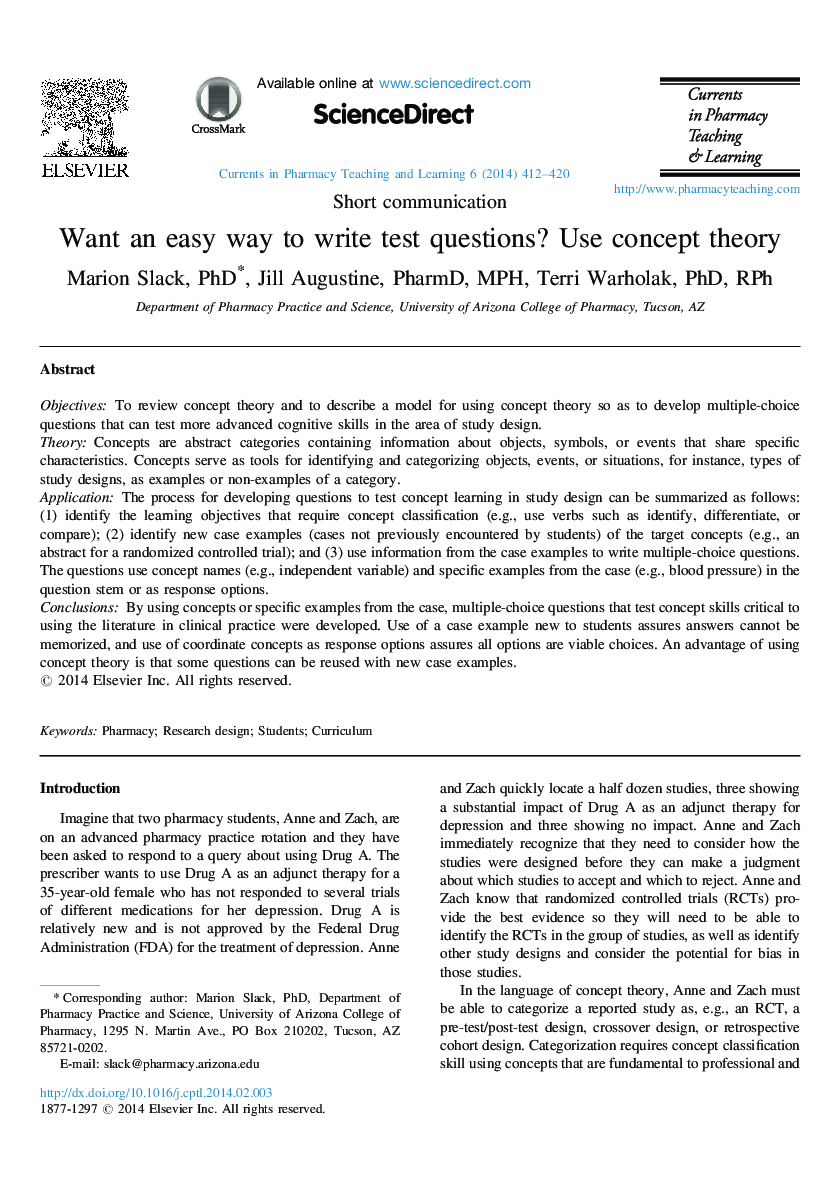| Article ID | Journal | Published Year | Pages | File Type |
|---|---|---|---|---|
| 353176 | Currents in Pharmacy Teaching and Learning | 2014 | 9 Pages |
ObjectivesTo review concept theory and to describe a model for using concept theory so as to develop multiple-choice questions that can test more advanced cognitive skills in the area of study design.TheoryConcepts are abstract categories containing information about objects, symbols, or events that share specific characteristics. Concepts serve as tools for identifying and categorizing objects, events, or situations, for instance, types of study designs, as examples or non-examples of a category.ApplicationThe process for developing questions to test concept learning in study design can be summarized as follows: (1) identify the learning objectives that require concept classification (e.g., use verbs such as identify, differentiate, or compare); (2) identify new case examples (cases not previously encountered by students) of the target concepts (e.g., an abstract for a randomized controlled trial); and (3) use information from the case examples to write multiple-choice questions. The questions use concept names (e.g., independent variable) and specific examples from the case (e.g., blood pressure) in the question stem or as response options.ConclusionsBy using concepts or specific examples from the case, multiple-choice questions that test concept skills critical to using the literature in clinical practice were developed. Use of a case example new to students assures answers cannot be memorized, and use of coordinate concepts as response options assures all options are viable choices. An advantage of using concept theory is that some questions can be reused with new case examples.
